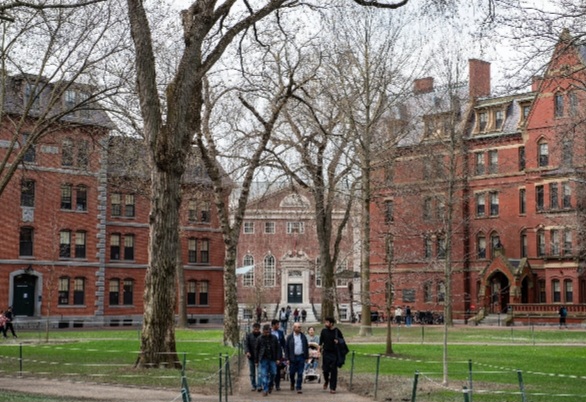President Donald Trump reiterated his threat on Friday to revoke Harvard’s tax-exempt status, declaring, “We are going to be taking away Harvard’s Tax Exempt Status. It’s what they deserve,” in a post on his conservative social media platform. He first mentioned this possibility in mid-April, though any move to follow through would likely face legal opposition.
A Harvard spokesperson responded to ABC News, stating there is no “legal basis” to strip the university of its tax-exempt status, emphasizing that such an action would harm the institution’s ability to fulfill its educational mission. The spokesperson argued that this unprecedented step would lead to reduced financial aid for students, the abandonment of essential medical research, and lost opportunities for innovation. They warned that using this power in such a manner would have severe consequences for the future of higher education in the U.S.
Trump’s criticism of the university comes after Harvard refused to comply with several of his administration’s demands, including actions on antisemitism and the use of DEI policies on campus.
The Trump administration had already frozen over $2.2 billion in federal grants and $60 million in multi-year contracts for Harvard. In response, the university filed a lawsuit claiming that the funding freeze violated the First Amendment and federal law. Revoking Harvard’s tax-exempt status would be the latest escalation in this ongoing conflict.
Federal law prohibits the president from directing the IRS to conduct or end an audit or investigation, but sources previously reported that the IRS was considering stripping the university of its tax-exempt status.
The White House stated in mid-April that any IRS investigation into Harvard had begun before Trump made his posts about revoking the school’s tax exemption.
Many public and private universities in the U.S. enjoy tax-exempt status under Section 501(c)(3) of the Internal Revenue Code due to their educational, research, and public service missions.
The Harvard spokesperson added that this exemption allows the university to allocate more funds toward scholarships, medical research, and technological advancements that contribute to economic growth.














